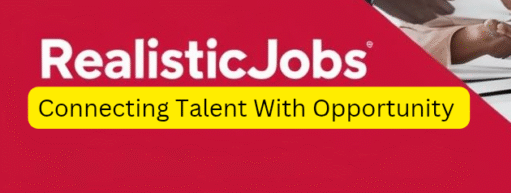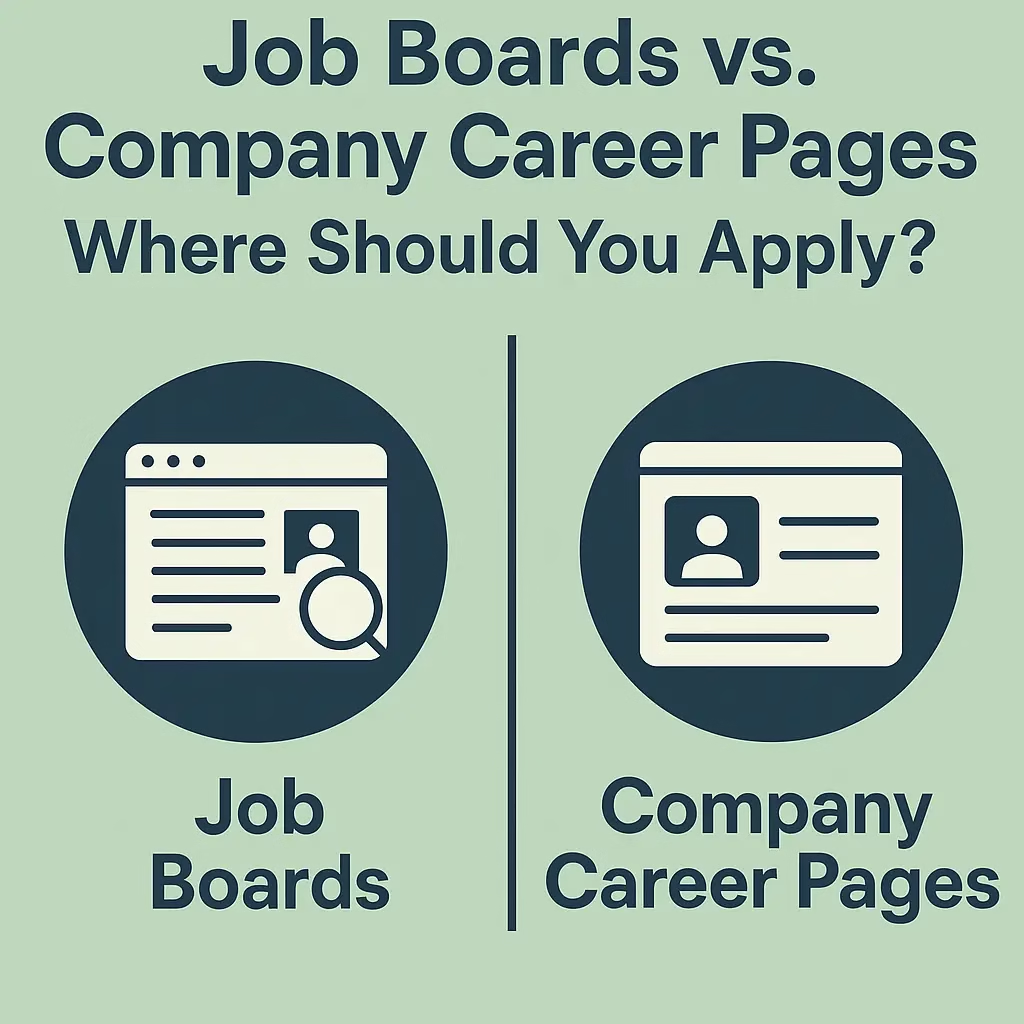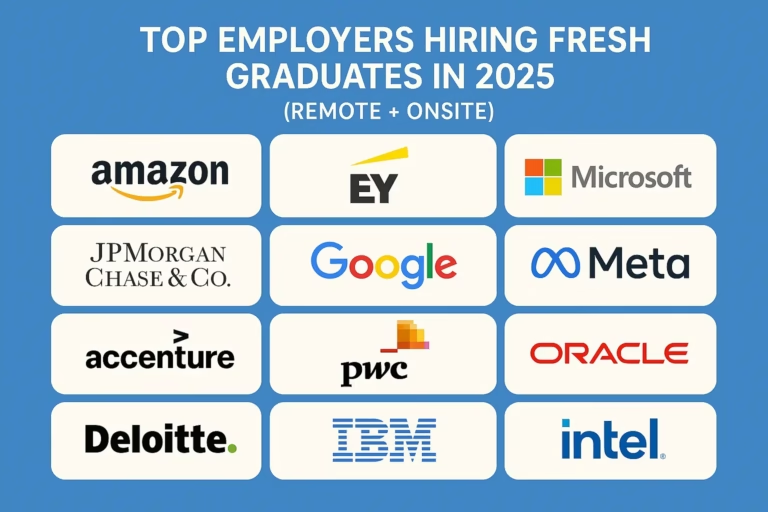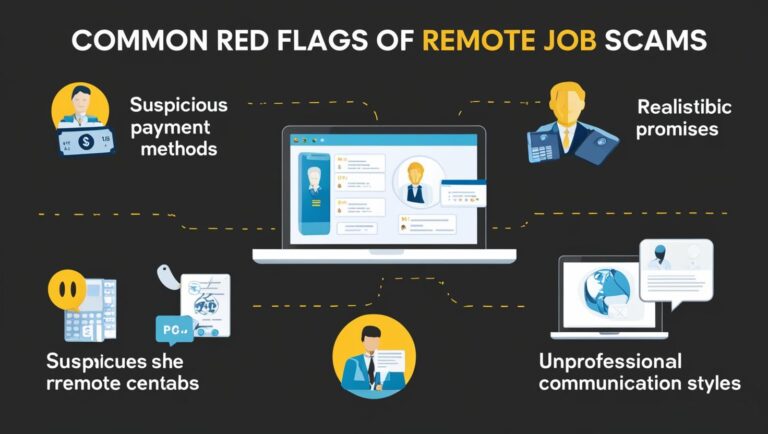Job Boards vs. Company Career Pages: Where Should You Apply?
In today’s digital job market, job seekers are often faced with a key decision:Should you apply through job boards like Indeed or LinkedIn—or go directly to a company’s career page? It’s not a trivial question. Your choice can affect how your application is seen, how fast you hear back, and even your chances of getting…
In today’s digital job market, job seekers are often faced with a key decision:
Should you apply through job boards like Indeed or LinkedIn—or go directly to a company’s career page?
It’s not a trivial question. Your choice can affect how your application is seen, how fast you hear back, and even your chances of getting hired. Let’s break down the pros and cons of each and help you figure out the best strategy for your job search.
The Two Main Avenues of Applying
- Job Boards (e.g., Indeed, Glassdoor, LinkedIn, AngelList, RealisticJobs)
Aggregators or platforms where multiple companies post open roles. - Company Career Pages
The “Careers” section on a company’s own website, often powered by internal applicant tracking systems (ATS).
When to Use Job Boards
Pros
- Easy to browse and apply: You can find hundreds of job listings in one place and often apply with just a few clicks.
- Filters and alerts: Job boards allow you to filter by location, role, salary, remote options, and more.
- Discover companies you’ve never heard of: Job boards can expose you to startups, remote companies, or niche employers.
- Great for early-stage exploration: If you’re still figuring out what roles or industries to target, job boards offer a wide view.
Cons
- High competition: One job post on a big board may receive hundreds of applicants in a day.
- Some listings are outdated or duplicated: Not every posting is fresh or even real.
- Third-party submissions: Some boards route you through recruiting agencies, not directly to the employer.
- Lack of personalization: It’s easy to send out 50 generic applications that don’t get noticed.
When to Use Company Career Pages
Pros
- Direct line to the company: Your application goes straight into their hiring system—less chance of being filtered by a middleman.
- More detailed job descriptions: Companies often share more about the role, team, benefits, and expectations on their own site.
- More roles available: Some companies post jobs only on their website and skip job boards entirely.
- Shows intentionality: Applying directly signals that you’re genuinely interested in the company—not just mass-applying.
Cons
- More time-consuming: You need to visit each company’s site, find the career section, and apply individually.
- No easy comparison: Unlike job boards, you can’t compare roles side-by-side or get salary data.
- Not always mobile-friendly: Some internal systems are clunky or confusing to use.
Related: How I Landed My First Remote Job
So… Which Is Better?
There’s no one-size-fits-all answer.
In fact, the best strategy is often a blend of both.
Here’s a decision matrix to help you:
| Scenario | Best Option |
|---|---|
| You’re exploring what’s out there | Start with job boards |
| You know which company you want to work for | Apply via their career page |
| You’re trying to maximize reach quickly | Use job boards |
| You want to stand out to a specific employer | Use the career page + personalized cover letter |
| You’re applying to startups or niche industries | Use job boards like AngelList or RealisticJobs |
| You’re applying to large corporations or well-known brands | Go directly to the company site |
Pro Tip: Combine Both for Best Results
Here’s how to use both methods strategically:
- Use job boards to discover companies and roles.
- Then go to the company’s official site to apply.
- You’ll bypass third parties and increase your credibility.
- Customize your resume and cover letter based on their job description.
- Track your applications.
- Use a spreadsheet or a tool like Huntr to log where and how you applied.
- Follow up on LinkedIn.
- Find the hiring manager or recruiter and send a polite message expressing interest.
Related: View Latest Learnerships
Bonus: Don’t Forget About Niche Job Boards
General job boards are useful, but niche job boards can be goldmines:
- Tech/Remote: We Work Remotely, Remote OK, Stack Overflow Jobs, RealisticJobs
- Design: Dribbble, Design Jobs Board
- Startups: AngelList (Wellfound), Y Combinator Jobs
- Freelance: Upwork, Toptal, Contra
These often attract more targeted job seekers and offer roles you won’t find on bigger platforms.
Final Thoughts
Choosing between job boards and company career pages isn’t about one being better than the other—it’s about using the right tool for the right phase of your job search.
Start wide, go deep.
Use job boards to explore the market, then narrow your focus by applying directly to the companies you care about most.
And remember: No matter how you apply, what really matters is the quality of your application. A tailored resume, a clear portfolio, and a thoughtful cover letter will go much further than just clicking “Apply” 100 times.
Got a preferred strategy or job board that worked for you? Drop it in the comments—I’d love to hear your story!







